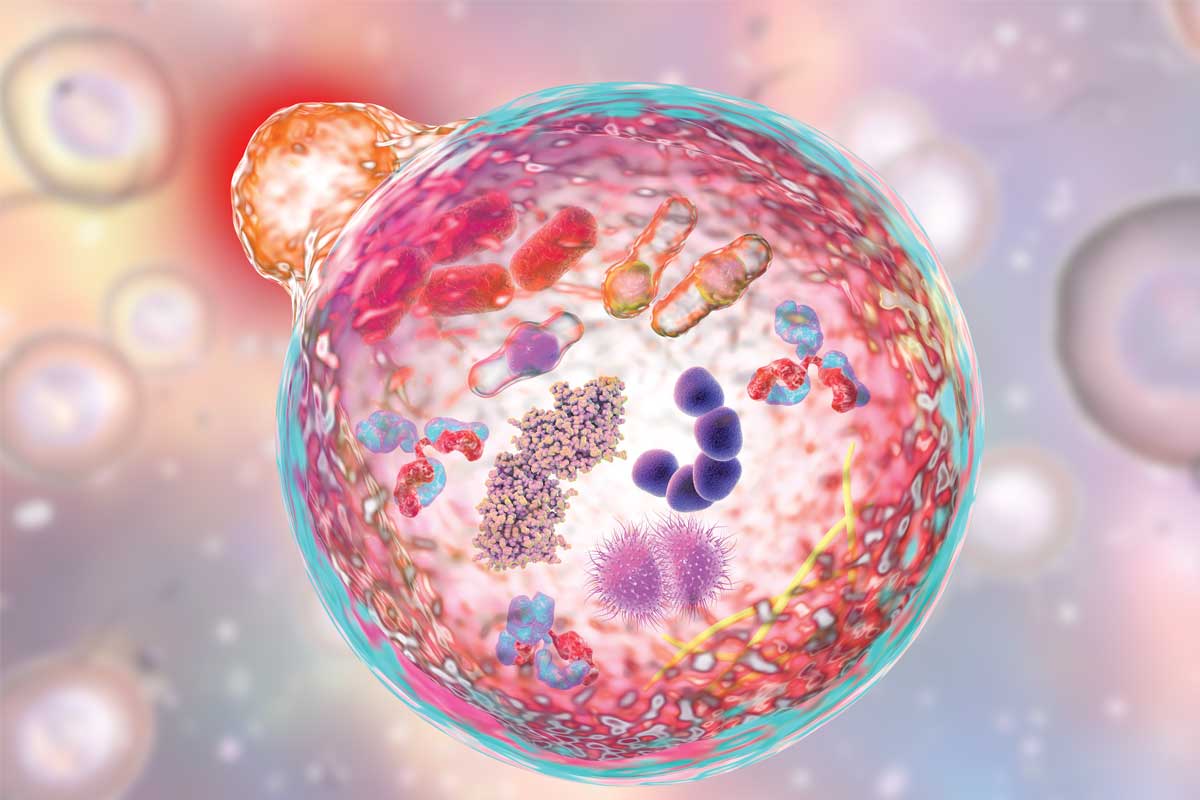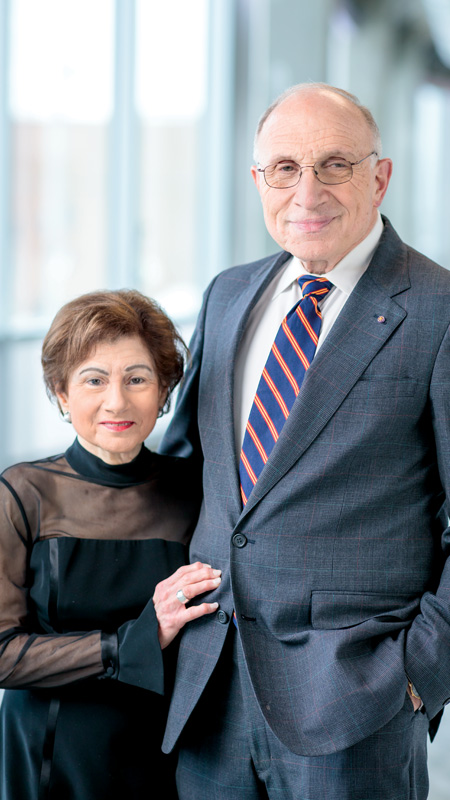
As a School of Medicine faculty member and pharmaceutical executive, Emeritus Trustee Philip Needleman, PhD, learned what it takes to move a drug from the lab to the market. And as a longtime member of the school’s national council, he has kept close tabs on advances at the school. Recognizing the potential of two specific research areas, Needleman and his wife, Sima, MSW ’74, a retired medical social worker and volunteer leader at the Brown School, have made a $15 million commitment to accelerate drug development aimed at a wide range of conditions.

The gift establishes two centers at the School of Medicine: the Philip and Sima Needleman Center for Autophagy Therapeutics and Research, which will enhance efforts to address the aging process; and the Philip and Sima Needleman Center for Neurometabolism and Axonal Therapeutics, focused on the breakthrough work of two faculty members who are pursuing treatments for neurodegenerative disorders.
Slowing the degenerative process
Although it plays a critical part in maintaining cell health, the process of autophagy was not widely known until recent years, when its emerging role in many diseases led to an explosion of interest. The autophagy pathway functions as a recycling center for cellular debris such as misfolded proteins, degraded lipids and worn-down cell parts. When functioning optimally, it keeps many diseases at bay. But the process declines with age, opening the door to degenerative conditions.
To prevent or treat age-related illnesses, scientists at the Needleman Center for Autophagy Therapeutics and Research will work to identify and develop drugs that target key parts of the autophagy pathway. Their research has the potential to help patients with Alzheimer’s disease, cardiovascular disease, osteoporosis, cancer and other conditions.
David H. Perlmutter, MD, executive vice chancellor for medical affairs and the George and Carol Bauer Dean of the School of Medicine, will direct the center. “With this center, we are establishing aging as a top priority of the school and beginning to make progress toward measurable outcomes,” he said. “And we are excited to have Phil work closely with us every step of the way.”
The center will be one of the few in the country dedicated to autophagy.
Exploiting a discovery
While the autophagy center will be built from the ground up, the Needleman Center for Neurometabolism and Axonal Therapeutics creates a formal structure around a longstanding research partnership between Jeffrey Milbrandt, MD, PhD, the James S. McDonnell Professor of Genetics and head of the Department of Genetics, and Aaron DiAntonio, MD, PhD, the Alan A. and Edith L. Wolff Professor of Developmental Biology, who will co-lead the center.
The two began collaborating a decade ago to investigate the root causes of nerve degeneration, which is implicated in conditions such as Parkinson’s disease, amyotrophic lateral sclerosis (ALS), multiple sclerosis, glaucoma and peripheral neuropathy.
The center builds on the researchers’ 2017 discovery related to SARM1, a protein involved in the destruction of axons, the long nerve fibers that transmit electrical signals throughout the nervous system. Many researchers had studied the protein, but none had uncovered what the Washington University team found: SARM1 is an active enzyme that is key to the degenerative process. This unexpected finding opened the door to future work to create a drug to block SARM1 from triggering axon degeneration. Moreover, DiAntonio and Milbrandt realized that thousands of proteins with scaffold-like structures similar to SARM1 also could be active enzymes that may be similarly useful for developing drugs.
The flexible funding provided by the Needlemans will allow the researchers to move quickly. “There’s a sense of urgency,” Milbrandt said. “This is the crowning achievement of our careers so far, and we want to be the ones to carry this work forward — we don’t want to wait for normal grant funding mechanisms to kick in.”
Investing in scientists
The researchers have received valuable mentorship from Needleman, who has been meeting with them at a St. Louis Bread Co. café. “We tell him about our project, and he offers advice and makes suggestions about the venture capital world and the pharmaceutical industry,” DiAntonio said. “His experience, contacts and willingness to counsel us are helping to expedite the drug-development process.”
Though their gift focuses on research, at its root is a desire to invest in exceptional scientists. “I go back to my time in the laboratory and what would have had an impact on me,” Philip Needleman said. “A gift like ours means that you don’t have to apply for grant funds every year. You can really stick to a problem and take risks.
“Because I have lived in both academia and industry, I can see the special people who have that twinkle in their eye, who see over the horizon and know how to execute,” he added. “I expect rapid progress from these two groups.”
Published in the Spring 2019 issue


